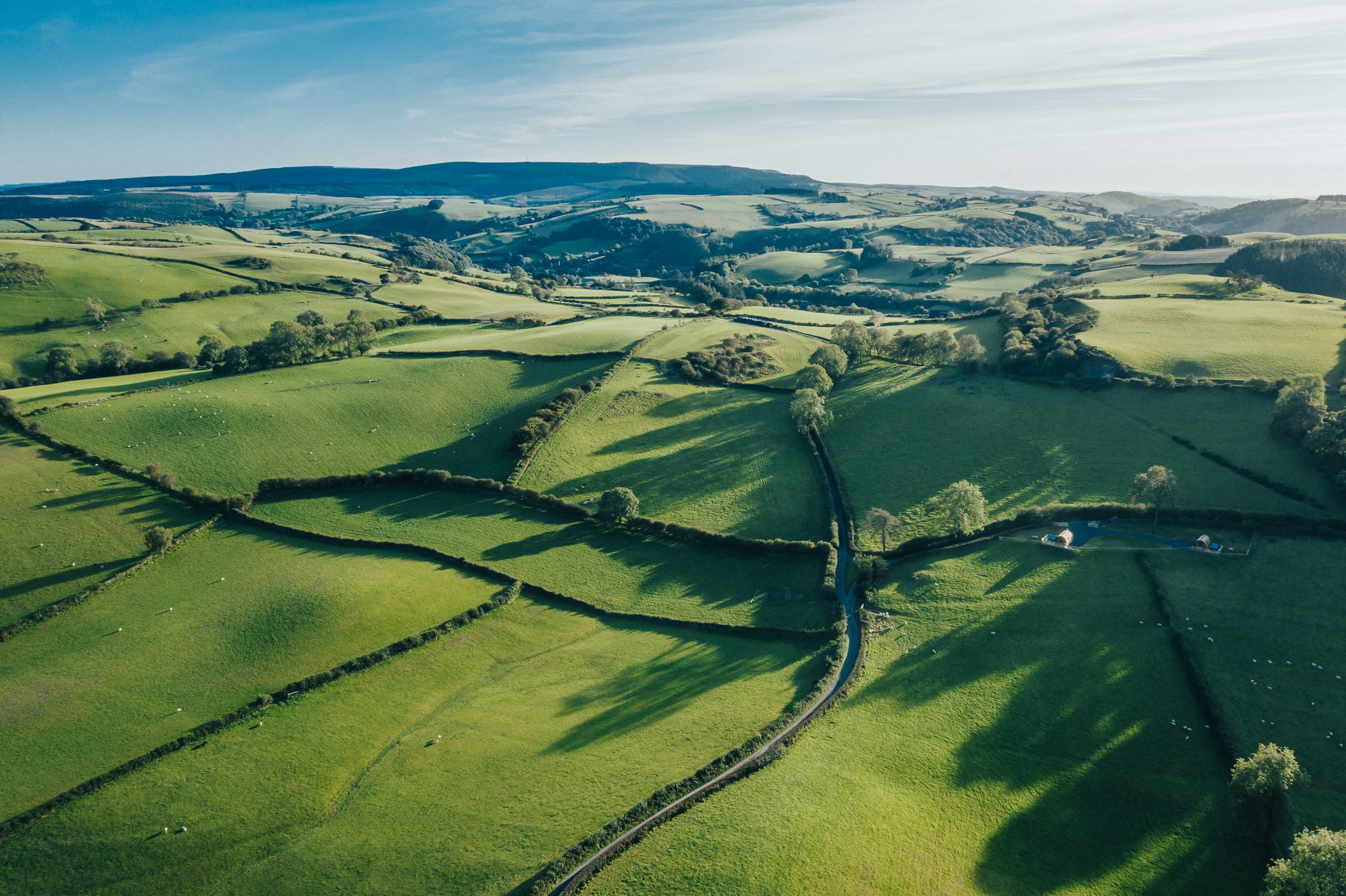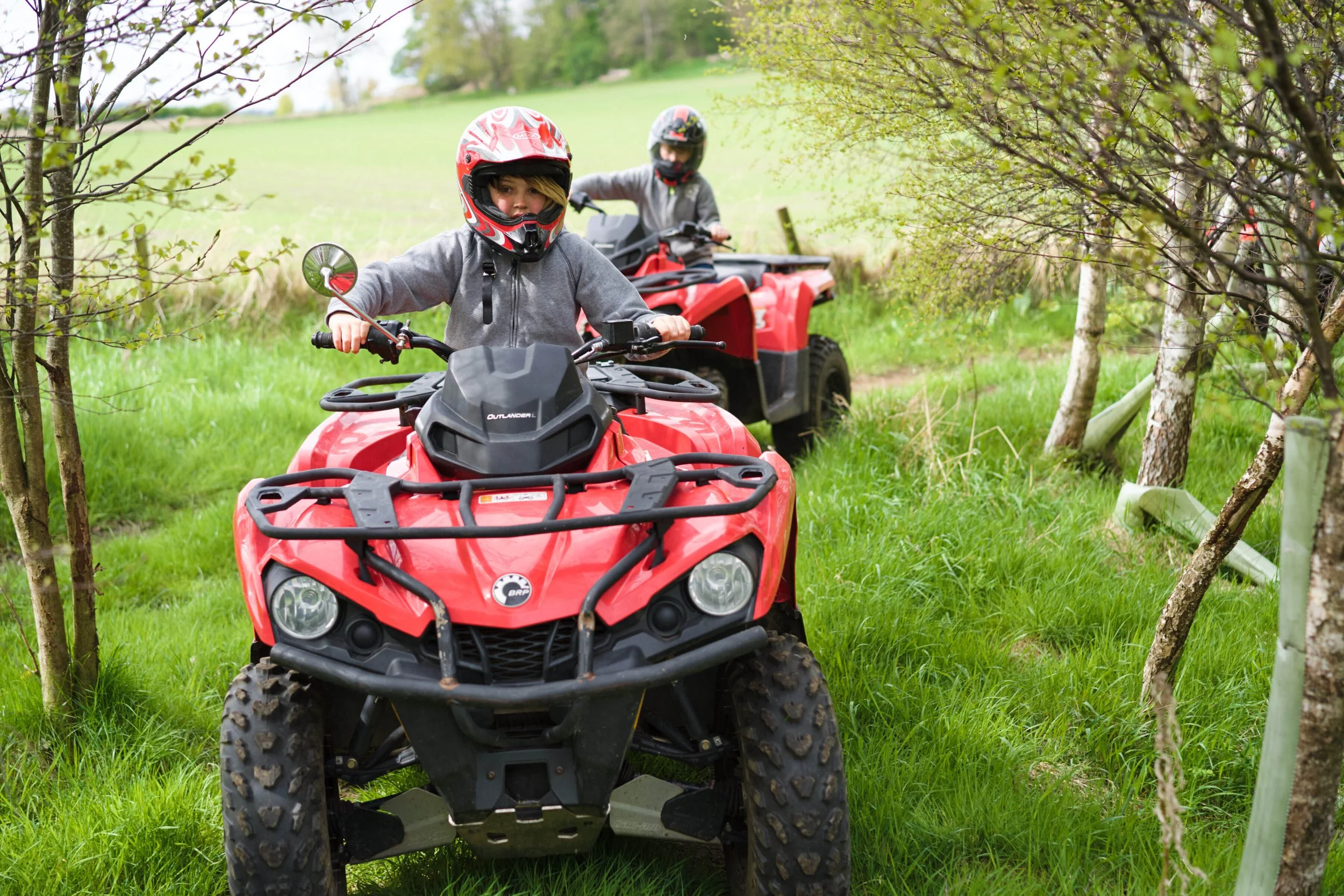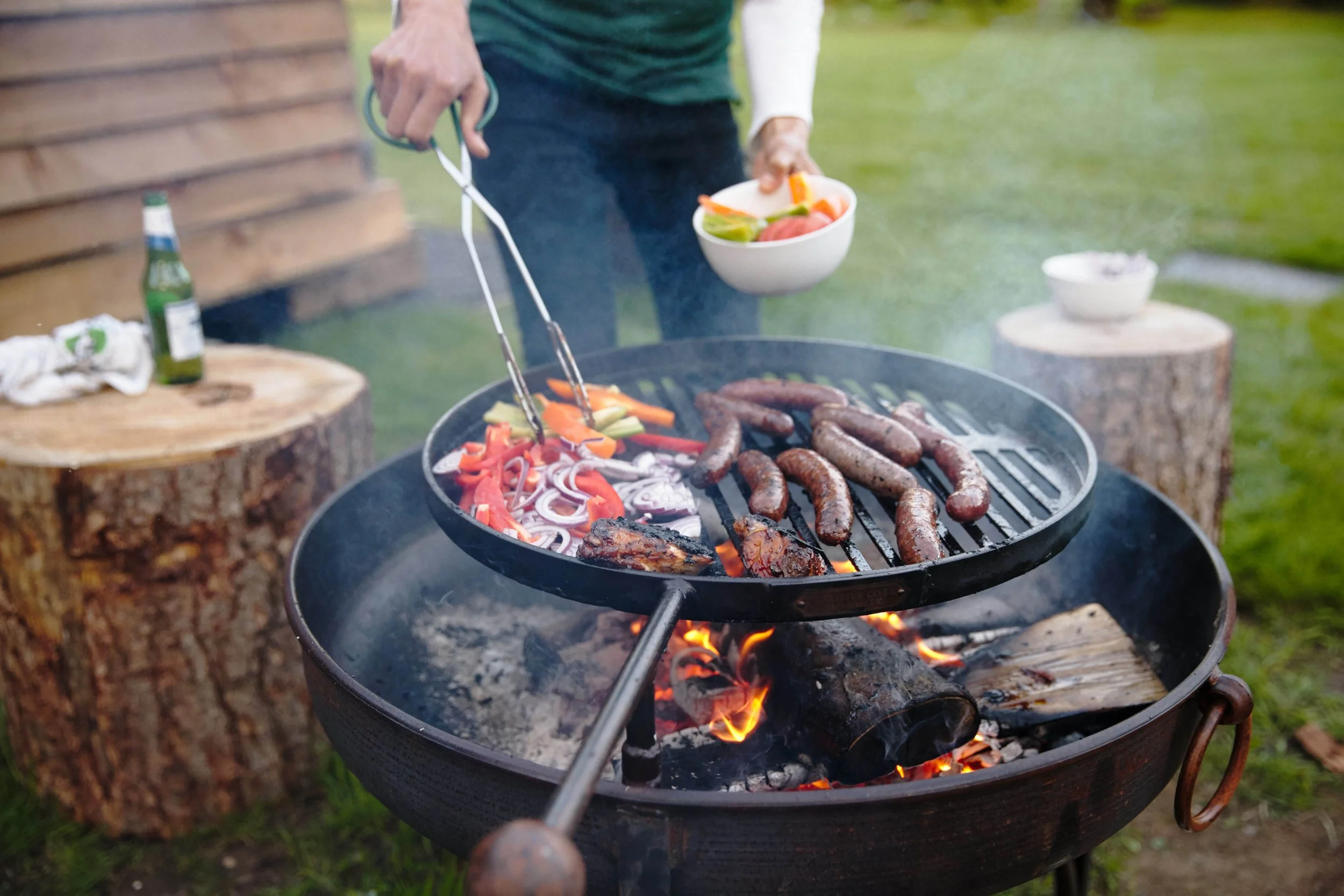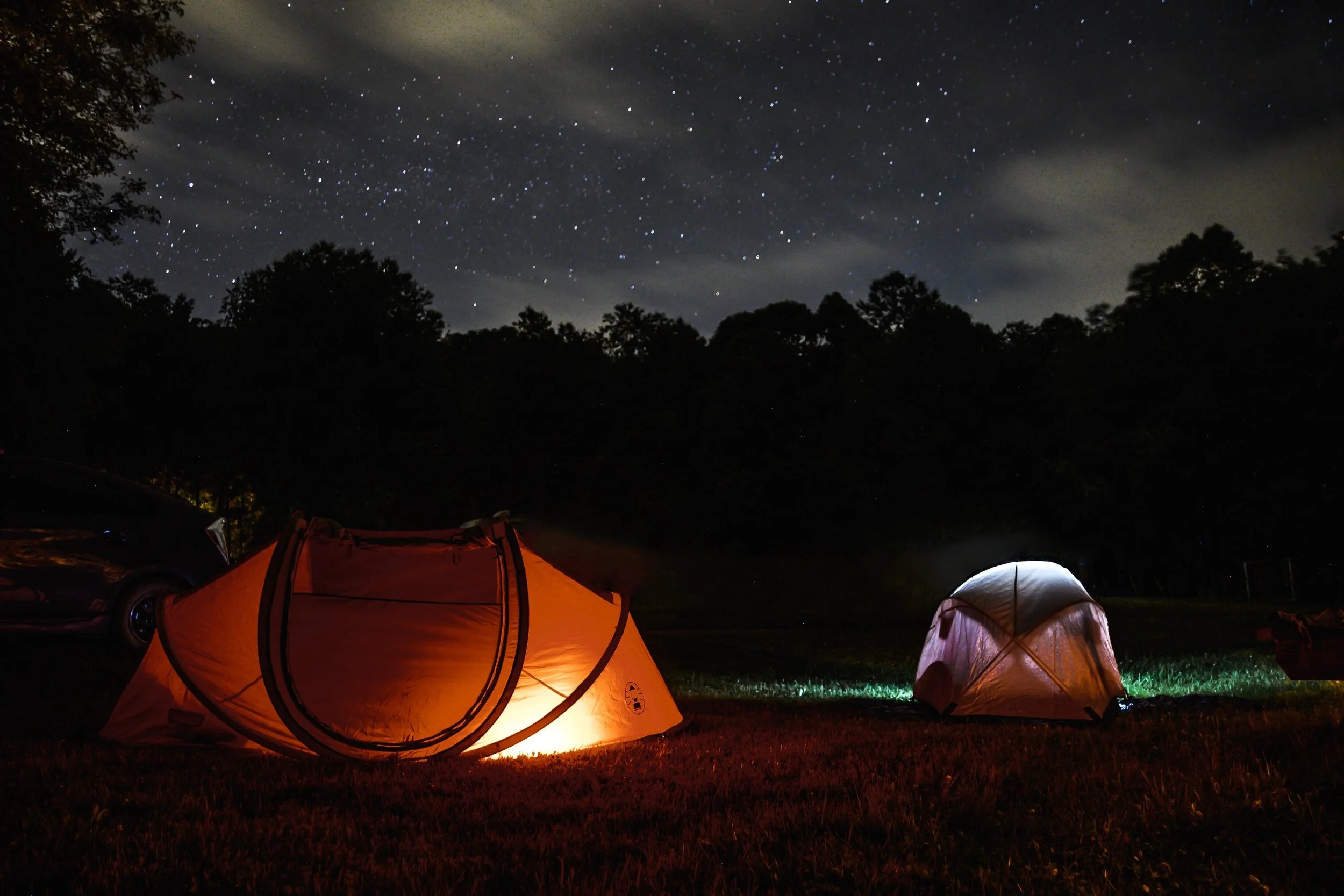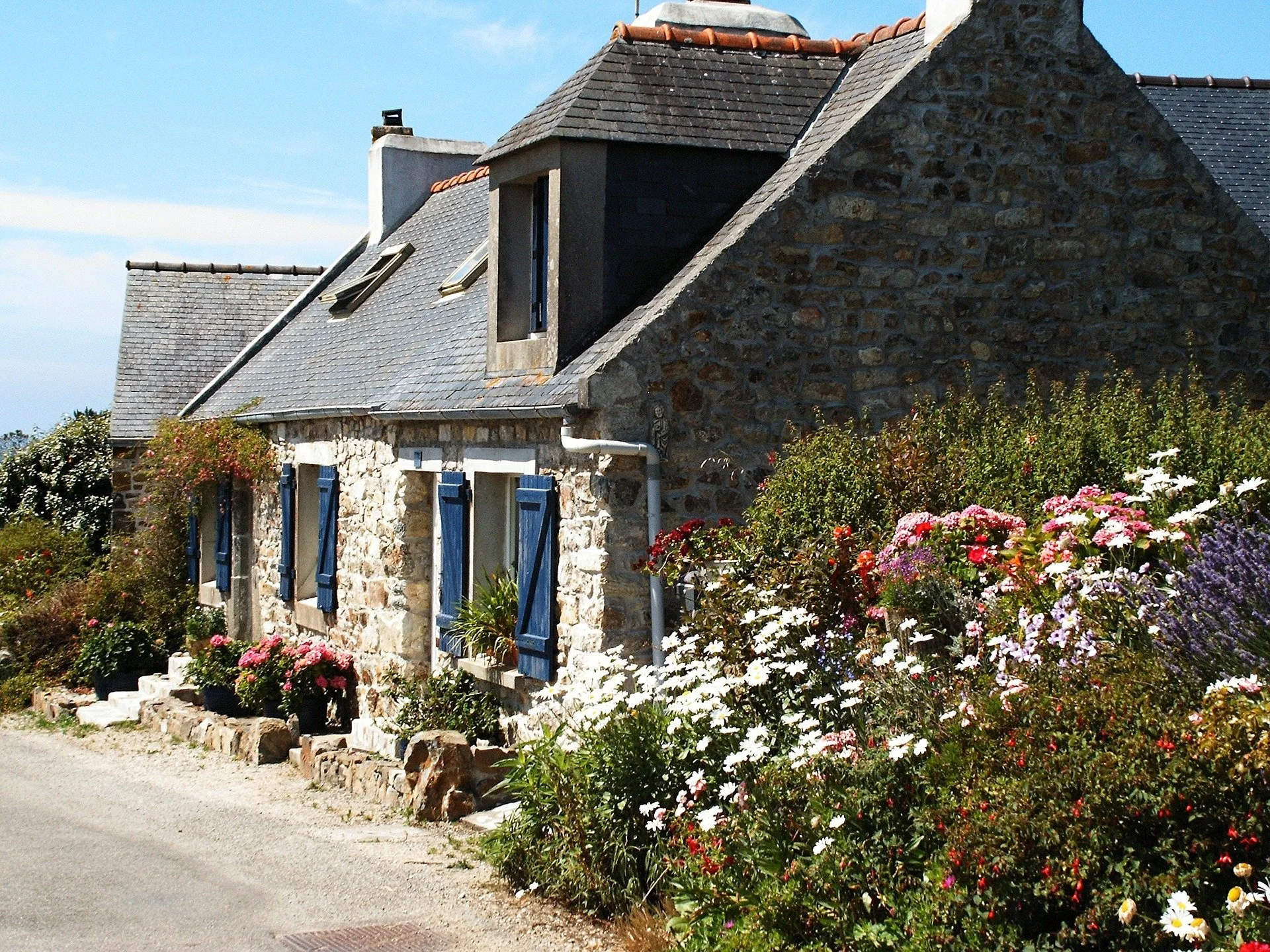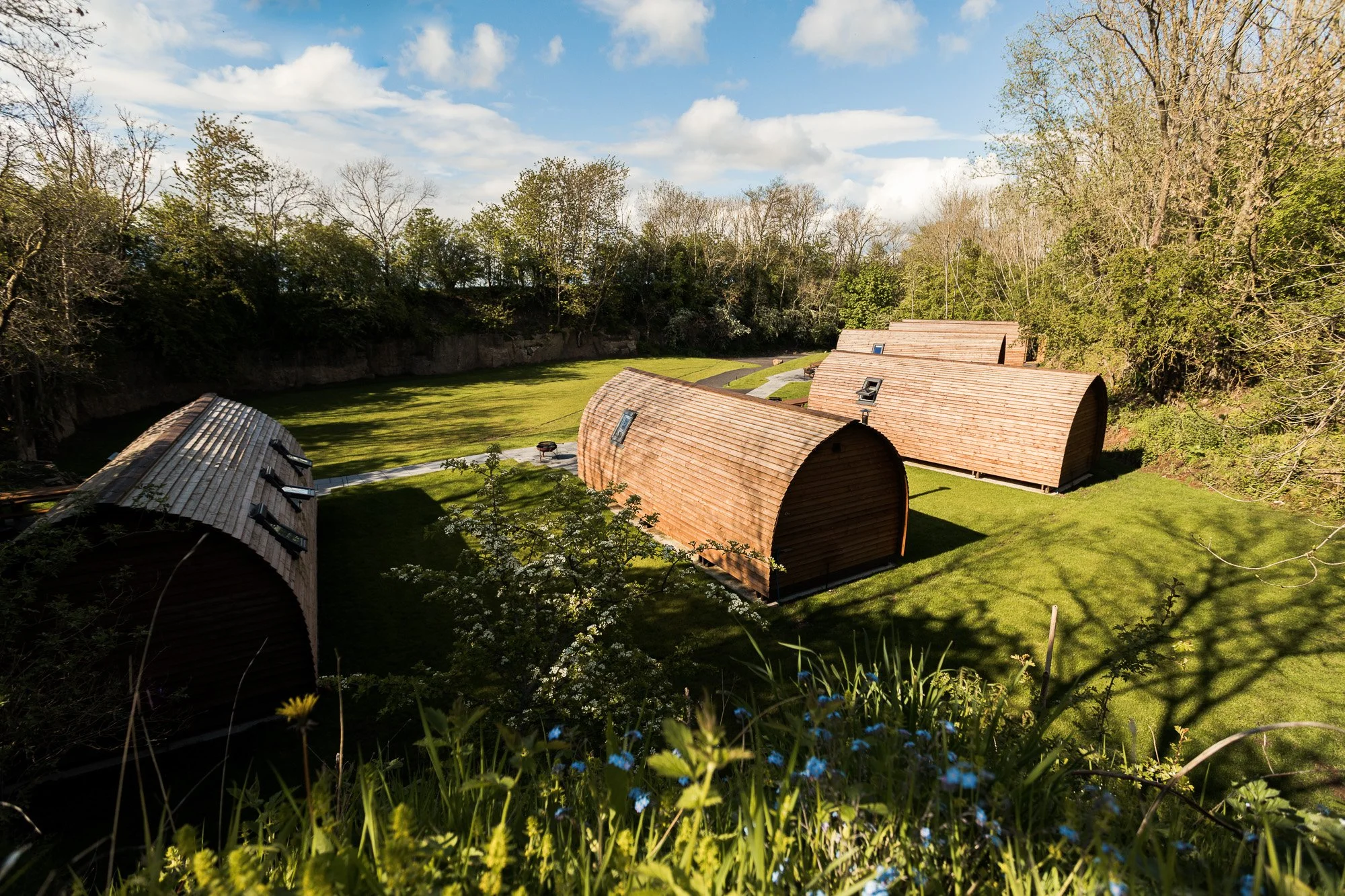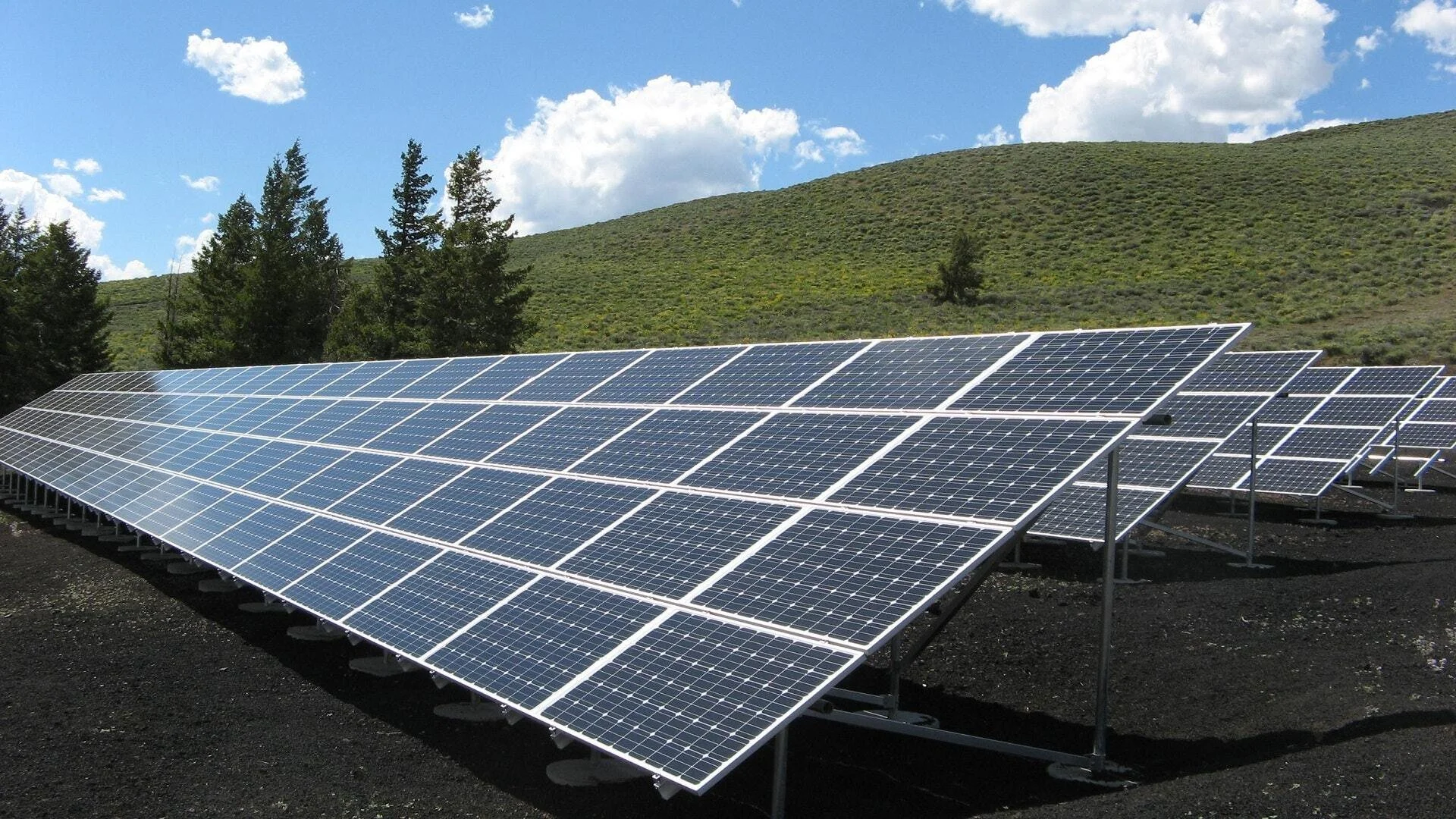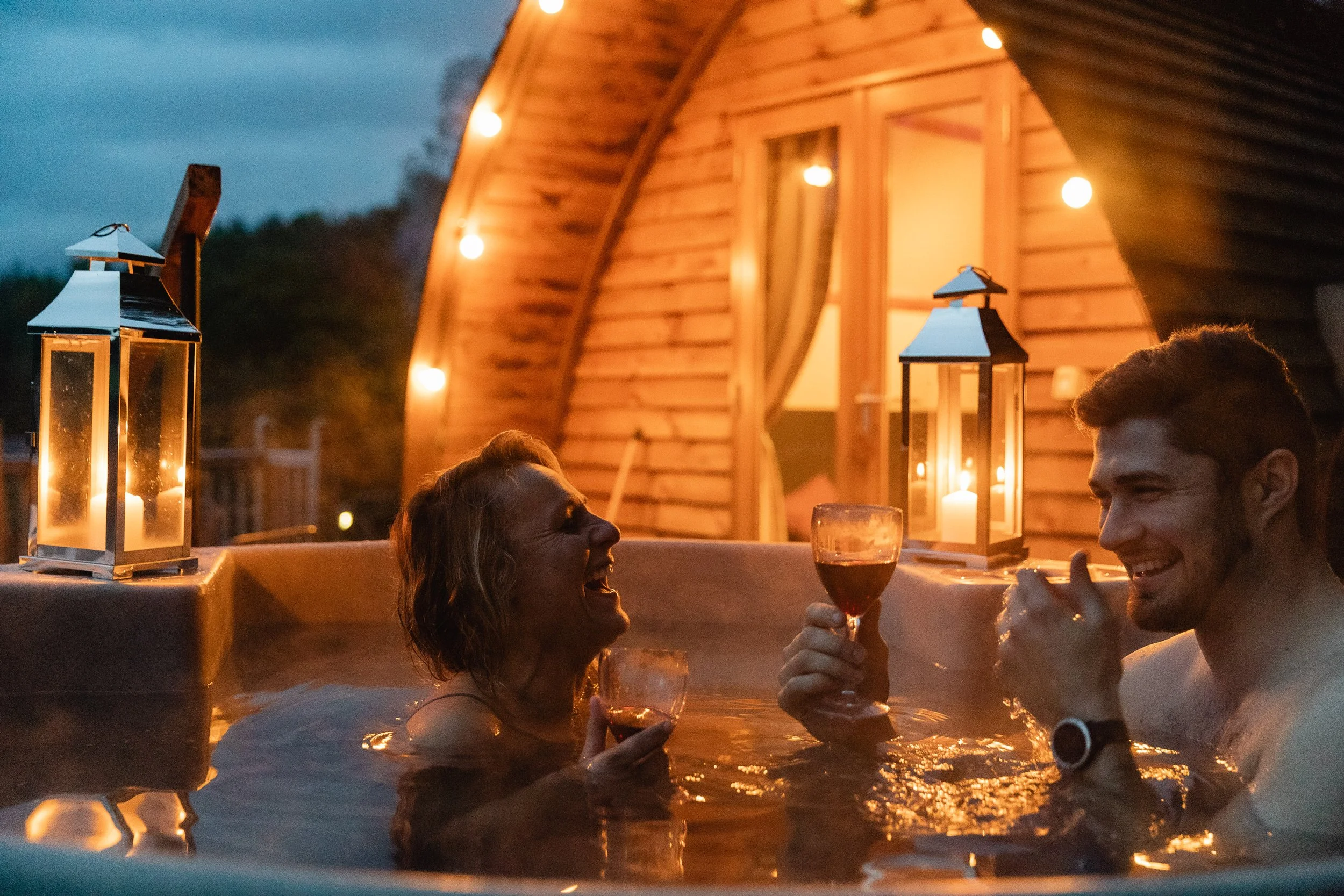The Ultimate Guide to Farm Diversification
A recent NFU survey found that 65% of farmers have diversified in some way and 48% of farmers are planning to start a diversification project or extend the one they already have up and running. Diversification projects have become essential for farmers to ensure a stable source of income not dictated by governments or weather. Farm diversification projects offer farmers the chance to make use of their land in different ways and secure financial security for their families.
There are a number of obvious business ideas that come to mind when we think about farm diversification. You could make the most of your farmhouse or surrounding buildings and start a B&B or cottage rental. You could open a farm shop or start selling some of your goods directly. You could put some windmills on your land and sell energy to the national grid. Alternatively, you could set up a camping or caravanning site and allow people to come and enjoy the peace and quiet of the countryside. It goes without saying that your farm and its surroundings will dictate which of these options is right for you. Beyond the specifics of your farm however, the most important factor in a decision on what form your farm diversification project should take is how much will it cost, how much can I earn and how much time will it take to manage? Below, we’ll have a look at some of the most common options available for farmers who are looking to diversify.
Contents
Experience Days
Think outside the box and get creative, experience days are a way to sell something unique about you and your farm to the public. These could be anything from farm tours, pottery classes, tractor safaris, guided walks, quad biking, you name it! Anything that you can think of that would be enjoyable for people and get them to your farm. It is easy for those that live in rural settings to get so used to where they are and what they do that they forget how different and unique it is to the rest of the public. Experience days are a way to let the public enjoy your land while giving them an experience that they won't forget.
If you’re creative and like being around people, experience days are a great way to get started in farm diversification. What you could expect to earn will obviously vary a good deal depending on what you're offering so it’s difficult to give you an idea of the returns here. Just as in ‘field of dreams’ however, you can rest assured that ‘if you build it, they will come’. The more effort you give to creating a great experience and the more effort you put into marketing that experience, the more you can expect to get out of it.
Setting up a Campsite
Camping is an obvious and cost effective option for getting started with farm diversification. In terms of start up costs, you would need to fix up a nice field so it's ready for guests, put in a toilet block, a reception and get yourself listed onto some camping booking channels. The benefits of starting a campsite are the relatively small start up costs since you don’t have to buy or build any accommodation units. The downside is that you won't make as much money. This is for two reasons; 1) There is less demand for camping holidays than more luxurious alternatives. 2) You can’t charge as much for nightly stays. You could expect to make around £10 - £20 a night, per pitch on a typical campsite. In terms of return, let's say you have enough toilets and showers to have 20 campers on site at any one time and let’s assume you charge an average of £15 per night with a conservative average occupancy of 30% (campsites enjoy less occupancy than other types of accommodation due to there increased exposure to seasons and weather). That could give you a total return of around £33000 per year. Tent pitches typically get a little less occupancy than touring or caravan pitches due to them being both less popular and less attractive in bad weather.
Although start up costs are relatively small compared to other alternatives, building a toilet block that can cope with twenty pitches is still an expense worth considering. You can get around the need for a toilet block by only installing touring or caravan pitches and not taking tents but this will obviously mean losing some of the camping market. You will also need to think about the marketing and managing of your campsite, both of which will need to be done right and can take up a considerable amount of time. Finally you will need to get planning permission. This will require time and money and can be quite difficult in certain areas. There are some exemptions to the need for planning. If you join a group like the Camping and Caravanning, they themselves can offer licensing certificates that allow for up to 5 caravans/ touring pitches and tents at any one time. Joining a group like this will likely have a positive effect on your occupancy rates as well as they are a trusted and well known operation whose customer base you could immediately tap into. Definitely something worth considering.
On the whole, developing a campsite might be a good idea if you have a nice field for it and want to avoid some of the start up costs associated with other types of accommodation like holiday cottages or glamping. If you started a small touring campsite, you’d just need to think about getting access roads in and possibly some power hookups. If you want to have some pitches for tents, you’d need to build a toilet bloc, this also You could expect to make a good return with camping but not on the scale that you could with glamping or holiday cottages as you wont get as high occupancy rates and you can’t charge as much per night.
Running a B&B
One of the most common means of farm diversification is to open up parts of your farm for guests to come and stay. If you have a house that’s large enough and you don’t mind opening a part of it up to the public, then having a farm B&B could be a great way to bring in a little extra income without having to spend much to get going. As with most things in life, the more you put in, the more you get out. Having a really nice B&B that guests keep coming back to is going to give you a better return. With a bed and breakfast, you could expect to make around £70 - £120 per night, per room. So with a fairly conservative average occupancy of 40%, you could make in the region of £10k - £18k per room per year. Air bnb and other similar channels make it easier than ever to market your rooms and secure a steady income. There are a few things worth considering with these websites though which we’ll look at in the ‘holiday cottages’ section below.
A more obvious issue worth considering with a B&B is the loss of privacy. You will have guests staying in a part of your house and you, or someone else, will have to be there in case a guest needs your help. It means losing some of your house and privacy and it requires a significant time commitment for cooking breakfast and cleaning rooms etc. If you're happy to have people in your house however and you don’t mind cooking breakfast then setting up a B&B is a great way to bring in some additional income without having to make a big investment.
Managing Self-Catering Holiday Cottages
It’s becoming more and more common for farmers to renovate buildings not being used for farming into holiday cottages for commercial letting. If done well, people can make a seriously good source of additional income with holiday cottages. One of the benefits of holiday cottages as opposed to B&B’s is that you can keep your privacy while also attracting longer term stays. With bed and breakfast, you’re likely to have guests staying for one or two nights only. With holiday cottages, you’ll have a lot more one or two week visits. This means more money for less work cleaning and cooking. Your return will vary substantially depending on how you are advertising the cottage, how big/ nice the cottage is as well as where it is and what kind of sites you have around the area. Sykes is a large UK holiday cottage letting business, they say that on average their holiday cottages make a return of around £18000 per year. If you have a larger cottage with all the bells and whistles and are in a particularly attractive location, you could be talking about a return of £40000 plus.
Some things to consider; 1) You have to buy, build or convert the cottage (houses are not cheap and getting planning for one can be very difficult) 2) You will have to pay council tax, TV licence etc on the property as it will have its own address and 3) You have to market the cottage and how you do it will be very important. All this can be expensive and if you don’t have a plot or existing building in mind, it may be worth considering a different, more cost effective option like glamping (more information below). If you have a farm with an old barn or piece of land with planning for a house, then you could keep your initial investment fairly low and look to make a decent return by letting a cottage for longer lets at a good nightly rate - making something like £18-30k a year. If these buildings are there anyway, this could make a lot of sense. A single holiday cottage is likely to cost anything upwards of £100000 so you're talking about making that money back in something like 4 years. Clearly however, with this option, you'll retain the value of the property or make money if it increases in value. On the other hand of course, the property could decrease in value, so this is something worth considering.
Once you have your cottage, the most important step is how to market your holiday cottage so that you get the returns you want. These days, it’s likely you’ll want to get your property on the various booking channels now available - airbnb, booking.com, trivago etc. Without having it on these sights, you're just not going to get the kind of occupancy needed to make it a viable business. The commission these channels charge varies, though it's usually around 15%. Air bnb is much less at 3%, however the customer pays the difference which means it will show as a higher price. With airbnb, there is also more work to do in terms of communication with the customer and providing certain things in the property like tea, coffee and bedding which ultimately means you spend more of your own time on each booking. Point being, you have to think about more than just the commission that channels charge, you also have to factor in how time intensive they are.
Before getting your property on each channel, you need to sign up to a channel management system. Channel management systems offer to sync your cottage’s calendar up to all the available channels and give you one unified booking system. This avoids double bookings and a huge amount of work. The issue is that you will have to pay for the channel management system as well as the commission for each channel. These costs will eat into your profit margins though they are worth it for the additional occupancy.
Holiday cottages could be a great way to make use of any buildings you may have spare on your farm or to get you invested in property while making money at the same time. If you're looking to scale your holiday operation up, you may face issues with planning/ space or remote management. There are a number of businesses that can help you do this but they will obviously charge for it. Once you have your cottage up on the booking channels and have a system to coordinate them, you could earn a solid income.
Setting Up A Glamping Site
Glamping has become a buzz word to describe all sorts of alternative accommodation in the countryside. It’s fancy camping, either in shepherd huts, bell tents, yurts, teepees or ‘pods’. The huge benefit of glamping over something like holiday cottages or renewables is that your start up costs are likely to be considerably lower and there is more opportunity for scaling your farm diversification project up. There is also a greater opportunity to make additional revenue streams for selling things like firewood, farm goods, coffee, pizzas - you name it, the upsell in this industry can make up around 10% of your total revenue. Once you have enough people at your destination and everyone is having fun camping outside in luxury, they are usually looking for food, fire and extra comfort - all of which can be provided for by you, the site owner, for an extra fee.
Here’s some things to consider if you’re thinking about diversifying your farm with a glamping business: Do you have a nice place to put the units? How easy will it be to get electric to the cabins? How hard will it be to connect them to water/sewage? Once you’ve answered these questions, your focus should turn to planning. Call your local planners and see what they say about your farm diversification project. Planning can be a lengthy and expensive process, if you have a chat with your local planners and they think you have a good shot at getting your farm diversification project through then it will be well worth the investment.
Just as with the holiday cottages, you will have to think about how you are going to market your glamping business and just as with holiday cottages, it is most likely that you will want to use a channel management system since other than joining a national brand (like Wigwam® Holidays) it is the only way to ensure you sufficient occupancy. As detailed above, with channel management, you will have to pay someone to integrate the various channels within your booking system and you will have to pay the commission for those various booking systems on top of the management service. If you are going to run your glamping business independently, it is the best way to start. You can get guests to your site using the channels and over time, you can hope to create a brand, site and website that attracts return customers who book directly with you.
There are a number of benefits to investing in glamping for farm diversification over renewables and holiday cottages. 1) You can start small and work your way up 2) A £25,000 luxury glamping unit can earn the same as £150000 holiday cottage. 3) You’ll have more people on site which means more opportunity for selling things like farm goods and fire wood. 4) Starting your journey of farm diversification with a glamping business gives you a great foundation for other business ventures you may want to start in the future - you will already have people on your land. 5) Glamping is an industry that is growing at pace and the current pandemic has only accelerated its popularity.
For more information on how to start a glamping business, have a look a this article here.
Diversify with Renewables
How Much Return On Investment Can I Expect With A Wind Farm?
How much can you expect to earn by putting wind turbines on your land? This one is rather complicated as it depends on many different factors, not least how windy your location is. You also have to think about energy prices, available subsidies and of course, the cost of the turbines. The current government has just rolled back a 2016 ban on subsidies for onshore wind farms which means you could be able to get funding to help fund a venture into renewables some time soon.
One of the difficulties with wind is securing planning as you need the support of the local community and many still believe such projects to be eyesores. With planning however, you can expect to make a good return on investment, especially if your farm uses a lot of energy itself. This is because it costs more to buy electricity than you can make from selling it. However, wind turbines are expensive and take a long time to get a return on your investment. For a turbine with a max output of 100k, you're looking at spending over £300k. If you have high annual wind speeds (above 7mph) and consume half the energy on site then you’d be making around £40k a year including what you're saving by not buying from the national grid. This would give you a return on your investment in around 8 years. If however you are exporting most of the energy to the national grid, the returns look less favourable - especially if you're not in an area with high average winds. £9k a year with average winds of 5mph going to around £34k with average wind speeds over 8mph. One of the benefits of a wind farm is, although they need a lot of space to work properly, you can still use all the land around them for normal farming activities. They take up a lot of space up above, but not very much on the ground.
Most wind farms you see however are not the result of the farmers investment and as a result, it is not the farmer who is likely to be the primary benefactor. Larger windmills cost millions (and have earnings to match) and it is usually a renewables developer who approaches the farmer to work out a deal whereby they can lease the land, ether with a fixed monthly rate per acre or with some share in the profits - the latter usually being the better option for the farmer. The scale at which wind farms are truly profitable requires serious money and the investment of a renewables developer.
If you have a windy site and you use a lot of energy on your farm, diversifying into wind power could be a great option if you're willing to make the investment. However, if you don’t use a great deal of electricity on your farm and you don't have a site with high wind speeds then diversifying into wind energy is unlikely to make sense unless you are approached by a developer.
How Easy Is It To Set Up A Solar Energy Farm?
If you’re interested in renewables but don’t have a site with high winds then it might be worth thinking about investing in solar, provided you have a site that’s free of shade. One immediate problem is that solar panels are still very expensive and there are currently no government grants to help get your project off the ground. The ‘Feed In Tariff’, a set government payment for energy produced on top of the money from the national grid, is no longer available. Despite this, as with wind energy, farms that use a lot of electricity have a lot to gain from putting solar panels up as the money saved from using your own energy is more than the potential money to be made from selling it. As with wind, most farmers who have larger solar projects are leasing the land to solar companies who put the panels on the ground and pay the farmer for the land. Just as with wind, investing in solar can provide a consistent source of income for your farm. Most larger solar projects in the UK are done in partnership with a renewable energy developer. For leasing the land, landowners can expect to make around £1,000 per acre per annum and this could be more if you arrange your payment as a percentage of profit. If you’re looking for a source of income and not just a way to save on your electricity bills, solar would be a good option for you if you have a site that is free from shade. If you have the right spot for it, leasing your land to a solar energy provider could give you a lucrative income stream, especially if you're getting a share of the profits. If your farm uses a lot of energy, it could well be worth making an investment yourself into a smaller scale solar operation as the savings could be huge.
Partner with Wigwam® Holidays Franchise
Glamping is one of the most cost effective and financially rewarding possibilities for farm diversification. You can put glamping units on a wide variety of different plots, as long as you have a nice field, and a peaceful site away from the noise and chaos of the city, you can be sure to attract lots of people to come and stay, providing your farm with lots of additional income.
The glamping industry is very different to farming however and many people will struggle to navigate their way through such a new business venture. Wigwam® Holidays has been in the industry for almost 30 years. They pioneered the first ‘glamping pod’ 10 years before anyone else even tried. They are one of the most prominent glamping brands in the country, growing every day, and they have a tremendous wealth of experience in the industry.
The benefits of a franchise model for your farm are clear and plentiful. By working in partnership with an experienced and recognised glamping brand, you can immediately tap into the customer base and knowledge that Wigwam® Holidays has spent 30 years developing and they have a proven and successful franchise model. If you’re like most farmers, it's the planning and funding that’s stopping you from starting your farm diversification project. This is where joining a franchise community like Wigwam® Holidays has some of its most valuable benefits. Wigwam® Holidays can use their experience and expertise to get your planning application finished and a business loan secured. Not just by using their connections at the major national banks, but by virtue of their proven and successful franchise model that banks can trust.
When it comes to running your business, Wigwam® Holidays will teach you everything you need to know for running a successful glamping franchise with access to the Wigwam® Academy, a learning database with hundreds of useful videos and tutorials. By joining the Wigwam® Holidays community, you become part of a network of over 80 glamping sites around the UK where you can learn from loads of farmers who just like you, made the decision to diversify. With quarterly seminars and an annual conference there are many opportunities for learning and networking and having someone to call when things get difficult can be a lifeline for people in the glamping industry. Wigwam® holidays charge a commission of 10% on accommodation turnover. Each cabin can expect to earn between £11k - £16k thousand a year. With just a few acres, you could have 6 Wigwam® pods in place and earning money in no time.
What's Next?
We've seen that there are some great options available to farmers and landowners looking to diversify and we've seen that glamping may be a particularly good option for many.
If you'd like to find out more about how Wigwam® Holidays can help you turn your glamping diversification dreams into reality, fill out an enquiry form below and a member of our dedicated business development team will be in touch with all the support and information you need to get started.
